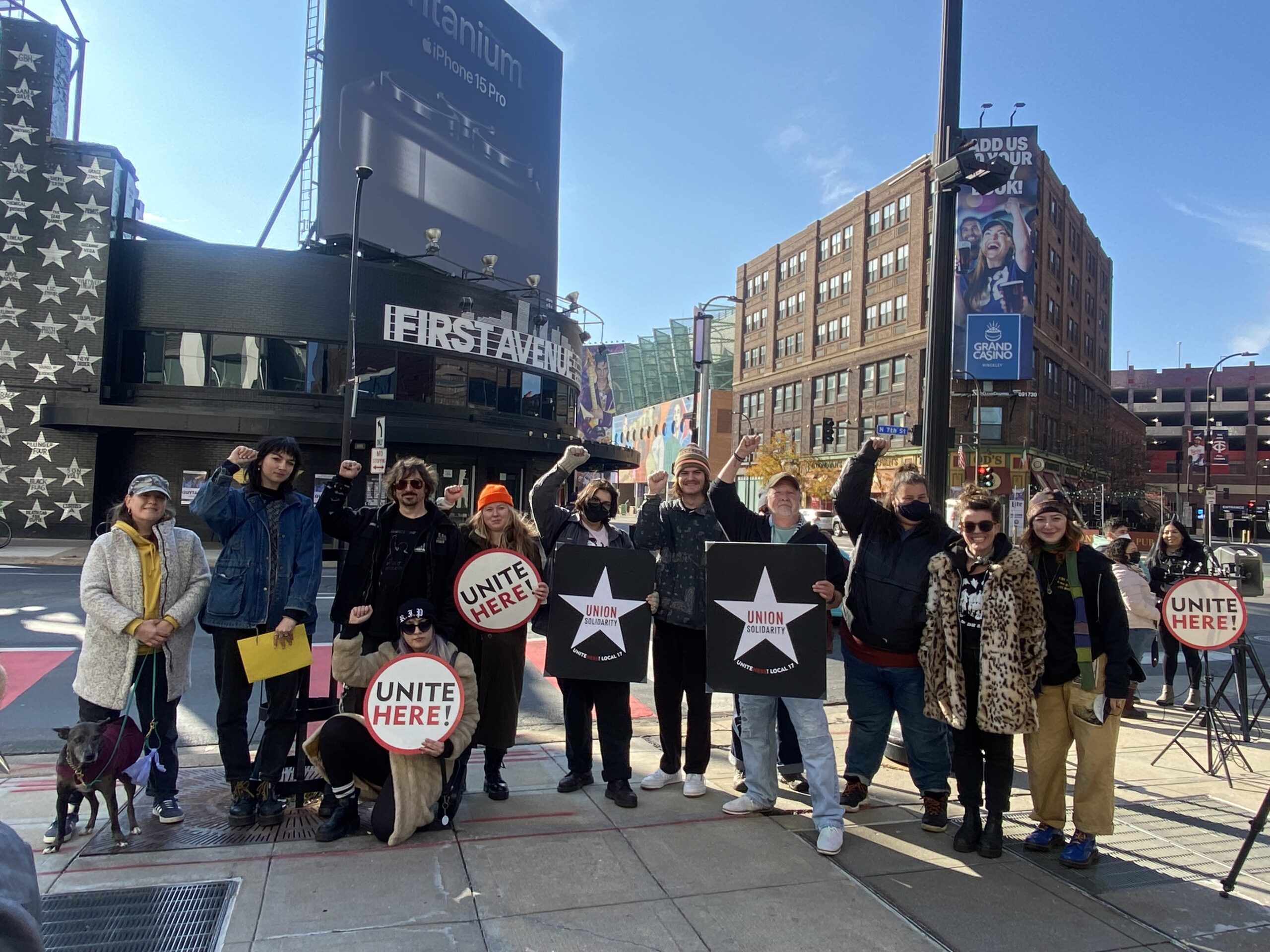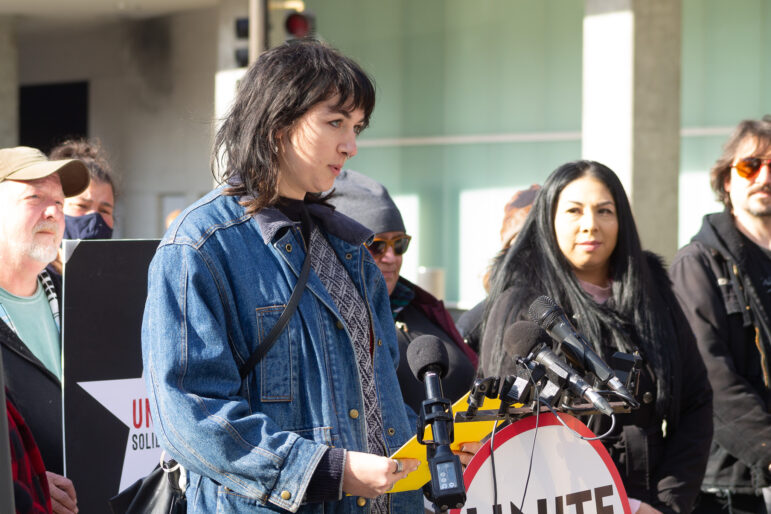
First Avenue workers pose with their fists raised outside the iconic Minneapolis music venue only a few hours before the First Avenue management voluntarily recognized the union. Photo: Isabela Escalona

Share
In the late summer of 2021, a group of workers from First Avenue, the iconic Minneapolis music venue, were fed up with low pay, last-minute scheduling, lack of parking, and safety concerns, and wanted to implement some of their own ideas in their workplace. Unsure of how to get it done, the workers decided to first contact Restaurant Opportunities Center of Minnesota (ROC-MN) to learn more about their workplace rights.
Fast forward to November 2: Over 200 bartenders, event staff, and other in-house workers across seven venues affiliated with First Avenue marched on the boss and delivered a petition that included the faces and names of over 70% of staff who want to unionize with UNITE HERE Local 17. About 24 hours later, First Avenue management voluntarily recognized the union.
Workers say the unionization effort was successful, in part, due to the collaboration between the worker center and the union.
Even before formal recognition, workers were confident. Pauli DeMaris, a First Avenue bartender and event staff for the past 18 years, said in an interview with Workday Magazine a few hours before recognition, “We have over 70% majority already on board. So I think, with those numbers, it would be kind of reckless for the club to not recognize us.” DeMaris was one of the workers who first approached ROC-MN, which provided workers with educational trainings about their rights on the job, including the right to organize. Once it became apparent that workers wanted to unionize, ROC-MN then connected the workers with UNITE HERE Local 17.

Whereas unions are often focused on negotiating contracts and engaging existing members, worker centers are able to step into worker education for workers not represented by unions, without the same constraints or formalities that unions must abide by. And while worker centers are able to fill these gaps, workers still have stronger legal protections through unionization—which is more difficult in agricultural and domestic labor industries, where employers are not legally compelled to recognize unions.. As a result, these workers have often turned to worker centers and other pro-worker organizations as an organizing home—including the Coalition of Immokalee Workers in Florida and the National Domestic Workers Alliance.
And in industries where workers have the right to unionize under the National Labor Relations Act, worker centers can be effective collaborators with unions. A notable example in the Twin Cities is the historic collaboration between Centro de Trabajadores Unidos en la Lucha (CTUL) and Service Employees International Union (SEIU) Local 26’s drive to organize retail janitors that successfully urged Target Corporation to sign onto a Responsible Contractors Policy in 2014. Other collaborations include the Awood Center, which receives funding by SEIU Local 26 to organize East African workers at the Amazon warehouses, and the Building Dignity and Respect Standards Council between CTUL and construction trades including the Carpenters Union and Laborers’ International Union of North America (LIUNA).
While not all worker center and union relationships have been seamless, in recent years the relationship has been embraced by many prominent unions and worker centers and the victories continue to grow. On its website, the AFL-CIO shares its support for worker centers with a statement that says, “The union movement works to improve the lives of all people who work—not just those who have the benefits of union membership. The statement continues, “All workers deserve fair treatment, respect and a voice at work, regardless of how they are classified by employers or regarded by labor law.”
In an interview with Workday Magazine, Sheli Stein, an organizer for ROC-MN, described the interconnectedness of ROC-MN and UNITE HERE Local 17’s organizing in the food service industry, one of the sectors with the lowest union density, low pay, and high rates of exploitation. “Our goal is to employ as many possible tools as possible to help workers make changes in their workplaces and across the industry,” Stein said. “And we believe the only way to do that is if workers build power that is credible.”
Sheigh Freeberg, an organizer with UNITE HERE Local 17, says worker centers are well-suited with strong infrastructure to provide training and education to non-unionized workers. “We’re grateful working people in the Cities have a real ally in ROC-MN,” he explained over email. “ROC-MN and UNITE HERE Local 17 share a long-term commitment to improving working conditions in the Twin Cities service industry.”

